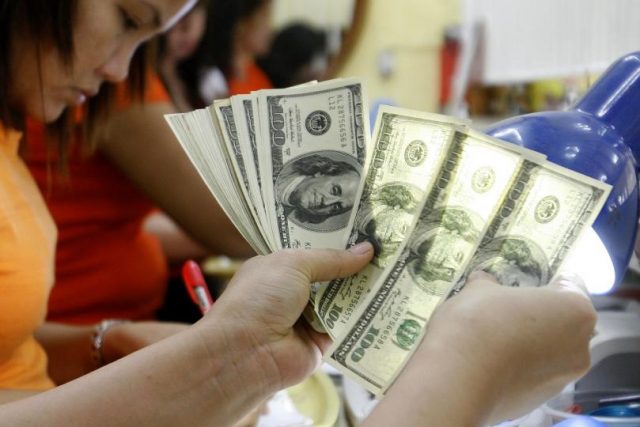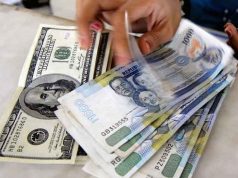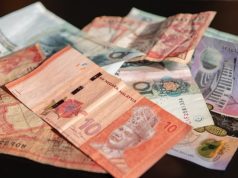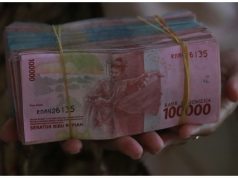- South Korea inflation beats consensus
- Malaysian ringgit, Thai baht emerge as outliers
- Taipei, Seoul shares fall more than 3%
South Korea’s won declined the most among subdued emerging Asian currencies on Friday, while most regional share markets traded in the red after weak manufacturing data from the United States pointed towards a weakening economic outlook.
The South Korean won <KRW=KFTC> fell as much as 0.5% to trade at 1,377.20 against the U.S. dollar and was set for its worst day in a week.
Inflation in the East Asian nation ticked up for July, slightly beyond market expectations due to supply-side pressure, casting doubt on whether the central bank will be in a position to cut interest rates in the near term.
“This (rise in inflation) may add more uncertainties over the Bank of Korea’s rate cut timing but should not change the easing direction,” said Ken Cheung Kin Tai, chief Asian foreign exchange strategist at Mizuho Bank.
Globally, investor sentiment was spooked after a weak U.S. manufacturing report from the Institute for Supply Management, even as the Federal Reserve signalled this week a potential end to its restrictive policy at its September meeting.
“Sentiment has been worsening despite the Fed’s looming rate cut. Investors were more sensitive to the recession risk and started to take profit from the U.S. rally,” Kin Tai said.
Other currencies including the Singapore dollar <SGD=>, Philippines peso <PHP=>, Taiwanese dollar <TWD=TP> and Indonesian rupiah <IDR=> traded flat to 0.3% lower.
The Malaysian ringgit <MYR=> was a notable outlier in gaining about 0.7%, riding on from its 1% gain from the previous day and hovering near its one-year high. The Thai baht <THB=TH> inched 0.2% higher.
The ringgit is the only positively performing emerging Asian currency with a 1.2% gain on a year-to-date basis.
“We do sense there is more positive idiosyncratic optimism towards the ringgit amid the government reforms, better than expected growth and more foreign investor interest,” analysts from Maybank wrote in a client note.
Among emerging Asian equities, the tech-heavy bourses in Taipei <.TWII> and Seoul <.KS11> were worst hit, falling more than 3% each, tracking peers on Wall Street. The indexes were poised for their third and fourth week of decline respectively.
Japan’s Nikkei <.N225> took a significant beating, slumping nearly 5% due to a stronger yen.
The MSCI International All Asia Pacific Index including Japan <.MIAP00000PUS> slumped more than 3%, its worst day in more than two years.
Shares in Bangkok <.SETI>, Singapore <.STI>, Manila <.PSI> and Kuala Lumpur <.KLSE> slipped in a range of 0.8% to 1.4%.
HIGHLIGHTS:
** Indonesian benchmark 10-year bond yield steady at 6.835%
** OCBC’s Q2 profit tops expectations, says on track to meet 2024 targets
** Indonesian financial regulators assess geopolitical risk, impact to economy
| Asian currencies and stocks at 0405 GMT | ||||||
| COUNTRY | FX RIC | FX DAILY % | FX YTD % | INDEX | STOCKS DAILY % | STOCKS YTD % |
| Japan | <JPY=> | -0.13 | -5.68 | <.N225> | -4.90 | 8.37 |
| China | <CNY=CFXS> | +0.21 | -1.84 | <.SSEC> | -0.45 | -1.87 |
| India | <INR=IN> | -0.01 | -0.62 | <.NSEI> | -0.75 | 14.23 |
| Indonesia | <IDR=> | -0.12 | -5.26 | <.JKSE> | 0.01 | 0.74 |
| Malaysia | <MYR=> | +0.66 | +1.17 | <.KLSE> | -0.81 | 10.75 |
| Philippines | <PHP=> | -0.02 | -4.95 | <.PSI> | -1.35 | 2.38 |
| S.Korea | <KRW=KFTC> | -0.20 | -6.16 | <.KS11> | -3.30 | 1.16 |
| Singapore | <SGD=> | +0.03 | -1.29 | <.STI> | -0.87 | 4.63 |
| Taiwan | <TWD=TP> | -0.25 | -6.42 | <.TWII> | -3.61 | 21.71 |
| Thailand | <THB=TH> | +0.20 | -3.75 | <.SETI> | -0.48 | -7.02 |
—Reporting by Archishma Iyer in Bengaluru; Editing by Christopher Cushing








